Towards Indonesia Emas 2045: Aligning Energy Security, Economic Growth, and Environmental Sustainability
PYC will hold its biennial flagship program, PYC International Energy Conference (PYC IEC) 2025, aiming to bring local and global stakeholders, including but not limited to students, researchers, experts, governments, and private sectors, to discuss global energy issues in the world and Indonesia in particular. This year, as Indonesia approach 20 years toward Indonesia Emas 2045, PYC chooses the theme “Towards Indonesia Emas 2045: Aligning Energy Security, Economic Growth, and Environmental Sustainability”, highlight the importance of balancing energy security, economic growth, and environmental sustainability.

Energy
Security

Economic
Growth

Environmental
Sustainability

Sustainable Energy as a Catalyst for Green Growth

Green Energy Financing

Workforce Development
Host Remarks, Opening Speech, & Keynote Speech


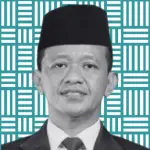
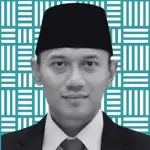
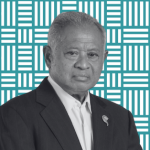


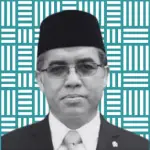
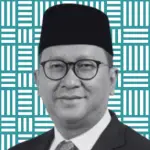



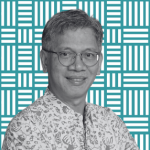













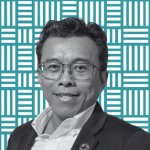
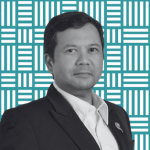











Topic: Achieving Environmental Sustainability through Green Financing
Indonesia has committed to achieving net zero emissions by 2060 or sooner. To meet this target, the country prioritizes programs on energy transition, including energy efficiency and conservation initiatives. As of 2024, new and renewable energy contributed only 14% of the total energy mix, indicating slow progress toward achieving energy transition goals. One of the key obstacles to this slow progress is financing. Limited access to capital and insufficient green financing mechanisms hinder project implementation, making it difficult to attract investments and ensure the financial sustainability of renewable energy projects. Meanwhile, according to the Ministry of Finance of Indonesia, the country requires approximately USD 1 trillion to finance its energy transition agenda through 2060.
Green financing, which refers to financial investments aimed at environmentally sustainable development, plays a crucial role in advancing decarbonization efforts and supporting renewable energy projects in developing countries including Indonesia. However, recent events in the global financial landscape have raised concerns about the stability and accessibility of international green finance, as well as the commitment to global emission reduction efforts. Several prominent financial institutions in the United States (U.S.) have recently scaled back or withdrawn their commitments from net zero banking alliance. This trend has been driven by a combination of domestic political pressures in the U.S., shifts in financial priorities, and concerns on profitability and risk in climate-related investments.
For developing countries like Indonesia, which often depend on external financing to fund sustainability projects, shifts in the global financial landscape pose significant challenges. A key example is the Indonesia Just Energy Transition Partnership (JETP), a funding initiative established through an agreement between the Indonesian President and the International Partners Group (IPG), led by the United States and Japan. Under this partnership, USD 20 billion has been pledged to support transition in Indonesia to cleaner energy sources. However, to date, not a single dollar has been disbursed. The recent withdrawal of major U.S. financial institutions may further reduce the availability of capital, delay critical projects, and increase the financial risks associated with energy transition programs. Additionally, U.S. political decisions regarding energy transition may influence the commitment of developing countries to pursue their energy transition goals.
This situation underscores the need for developing countries to build resilience by strengthening their domestic financial frameworks and resources. Adopting a more self-reliant approach to green financing will help reduce vulnerability to external shocks and ensure the continuity of environmental sustainability initiatives. This session aims to address financing challenges and explore domestic funding options tailored to specific conditions and opportunities in Indonesia, with the goal of optimizing the implementation of energy transition and energy efficiency initiatives in the country.
Opening and Introduction by the moderator
Inka B. Yusgiantoro
Darwin Cyril Noerhadi
Board of Supervisory, Indonesia Investment Authority
Peter du Pont
Co-CEO, Asia Clean Energy Partners
Harapman Kasan
Wholesale Banking Director, UOB Indonesia
Ianto Jones
Head of Low Carbon Energy and Infrastructure at Foreign, Commonwealth and Development Office
Topic: Integrating Indonesia Emas 2045 into Skilled Workforce for the Energy Transition
The success of the energy transition depends not just on technology or policy, but also on the people. A skilled and adaptable workforce is the backbone of this transformation. Additionally, ensuring that workforce development is effectively implemented in a just and sustainable manner is crucial. This notion aligns with the National Medium-Term Development Plan (Rencana Pembangunan Jangka Menengah Nasional/RPJMN) 2020–2024, which emphasizes the importance of human resource development, increasing economic productivity, and advancing digital transformation.
According to a report by the International Energy Agency, the global energy transition is expected to create 14 million new jobs, with around 5 million jobs shifting from the fossil fuel sector to the renewable energy sector. In Indonesia, the OECD (2024) forecasts that job creation will be driven primarily by solar PV, biomass & waste, and geothermal industries, requiring intermediate levels of skills and knowledge. Although the energy transition presents many opportunities, significant challenges remain. One of the primary obstacles is the low skill level of the Indonesian workforce, as the majority of workers still have a secondary or lower education level, limiting their readiness for green technology-based jobs. Additionally, low green skills literacy poses a barrier in preparing the workforce to support the energy transition.
The Center for Employment Policy Development, Ministry of Manpower reported that Indonesia has the advantage of a large productive-age population, projected to reach 215.37 million people in 2024, with a labor force participation rate (Tingkat Partisipasi Angkatan Kerja/TPAK) of 70.1%. The young generation, dominating the productive workforce, is also highly adaptive to technology. However, Indonesia faces a significant skills gap and the informal sector remains dominant at 59.16%. This challenge is further exacerbated by the development gap between urban and rural areas.
Moreover, collaboration between the government, private sector, and educational institutions remains suboptimal, leading to insufficient workforce readiness to meet industry demands. Other challenges include the prevalence of low-quality jobs, social inequality, and unemployment among higher-education graduates, indicating a mismatch between workforce skills and market needs. This trend underscores the importance of effective policies, robust data, and strong regulatory frameworks. These frameworks should include targeted incentives to encourage investment from private sectors in training and clean energy technologies, as well as clear certification standards to ensure workers acquire the skills necessary to thrive in emerging sectors. Additionally, data-driven approaches will be crucial for identifying skill gaps, tracking progress, and ensuring that training programs align with the evolving needs of the energy transition.
Opening and Introduction by the moderator
Luky A. Yusgiantoro
Simrin Singh
Director for the International Labour Organization (ILO) Country Office for Indonesia and Timor-Leste
Ruly Marianti
Team Leader for Green Jobs Policies & Partnerships, Green Jobs for Social Inclusion & Sustainable Transformation (GESIT Project)
Amalia Adininggar Widyasanti
Head of the Central Bureau of Statistics (Badan Pusat Statistik/BPS)
I Dewa Gede Karma Wisana
Head of the Demographic Institute University of Indonesia
The Purnomo Yusgiantoro Center (PYC) is an independent, non-profit organization founded by Prof. Ir. Purnomo Yusgiantoro, M.Sc., M.A., Ph.D., as a concrete manifestation of his dedication and contribution to Indonesia. Through his previous strategic roles in government, his vision on the importance of natural resources, energy, security, and social development as pillars for national growth has grown stronger.
